Eye Candy (42)
By:
December 29, 2020
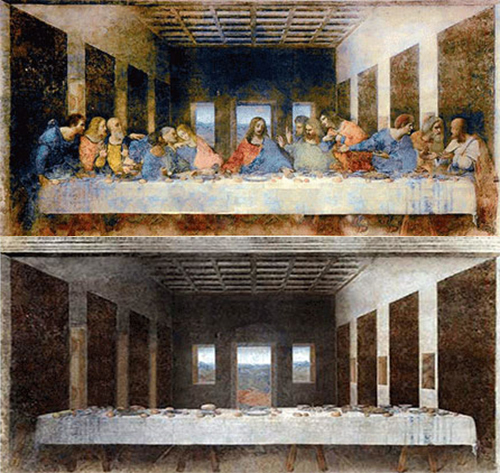
and as revisioned by José Manuel Ballester
When the first lockdowns due to COVID-19 happened back in March, many of us (Eye Candy included) ventured out on socially-distanced walks for our allotment of daily exercise, and to gaze at our newly-emptied cities. Of course they weren’t really empty, but the usual surging crowds of commuters and tourists were absent from the streets, and even vehicles (for awhile) were quietly parked at home. After the initial amazements of architecture, and the uncanny feeling of walking around in a film’s establishing shots, the novelty wore off, and the emptiness became wearing. Thus, our ventures into space.
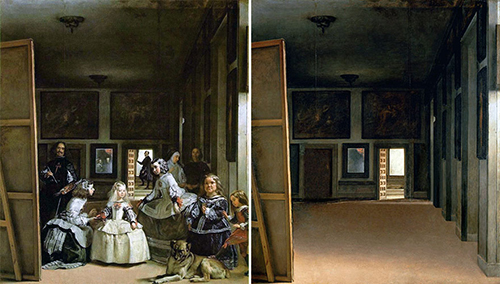
and as revisioned by José Manuel Ballester
Spanish painter José Manuel Ballester has also ventured out, but into time. In his series Concealed or Hidden Spaces (Espacios occultos), he recreates famous masterworks from art history, sans the people. Sweeping through time, he locks down da Vinci, Botticelli, Vermeer, Picasso, Velázquez, and many others besides. As we examine the de-peopled images, we are left to ponder, were they erased or removed? Or (more ominously) were they ever there?
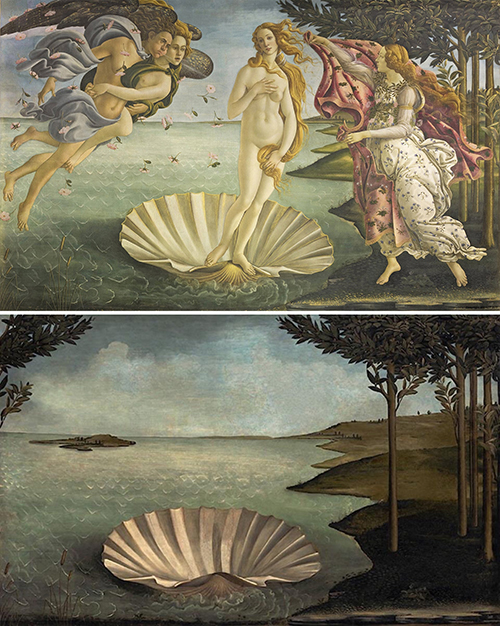
and as revisioned by José Manuel Ballester
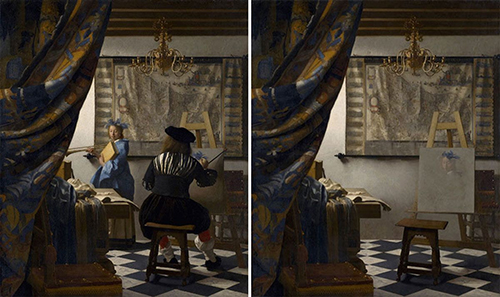
and as revisioned by José Manuel Ballester
And yet, these scenes only make sense when one remembers their occupants. The attendees at da Vinci’s Last Supper have been fading away from the table for centuries; while in the emptied-out Vermeer, we may still discern the ghostly image of a portrait just begun. Perhaps it is not so much that the people are not there, but they are not there at the moment; they were there, and they are expected to return.
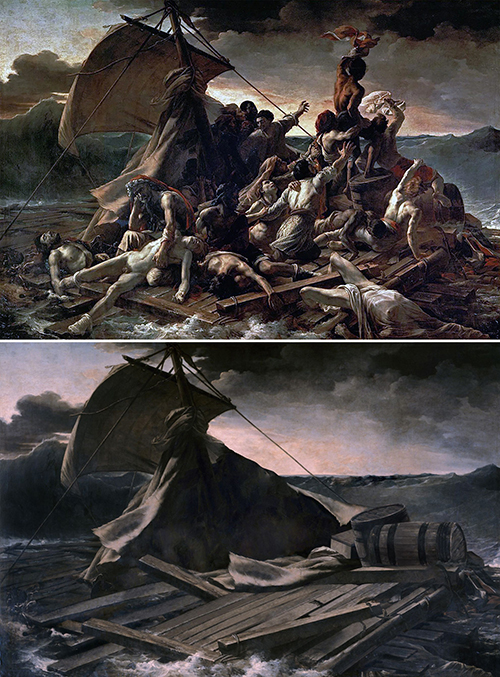
and as revisioned by José Manuel Ballester
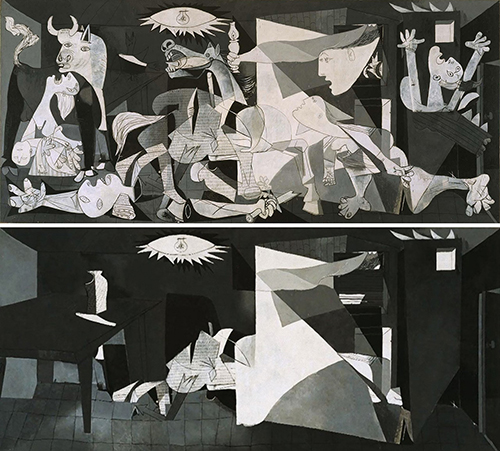
and as revisioned by José Manuel Ballester
As are we. Eye Candy will see you out there, in the hopefully not-too-distant future.
José Manuel Ballester : portfolio
Ballester at Guggenheim Bilbao
Interview on Bored Panda
ArtNet news: article
